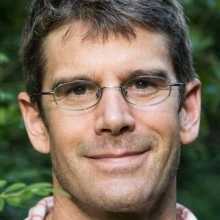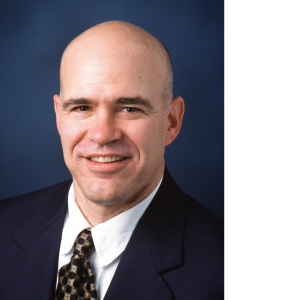Below is the current listing of faculty involved in the Duke University Integrated Toxicology & Environmental Health Program (ITEHP). These individuals provide a variety of resources to our program, including course delivery, scientific expertise, and laboratory opportunities for doctoral training. Direct-admit ITEHP students will rotate with three (3) different labs during their first year to gain exposure to a variety of laboratory settings and determine their training track; affiliation with a specific laboratory occurs at the end of the first year.
Note that not every faculty member listed is currently accepting PhD students as trainees. It is the responsibility of program applicants to reach out to their faculty of interest and confirm whether they are accepting new trainees in their laboratories. We do maintain an internal list of ITEHP faculty availability for students, updated annually; please contact DGSA, Jessica Straehle, if you would like to view the current listing.
Selecting your graduate advisor is just as important as deciding on your research project. We suggest you read this article to get some insight into this important process. To learn more about the mentoring style of a specific faculty member, we suggest you reach out to students who have worked in their labs. If you would like to know which students have experience in a particular lab, please contact DGSA, Jessica Straehle.
Michael H Bergin, PhD
Pratt School of Engineering: Civil & Environmental Engineering
Investigates the influence of air pollution (particularly PM2.5) on human health, and develops novel air sensors.
Focus Areas:
- Environmental Health & Disease: Global Health
- Exposure Science
Emily S. Bernhardt, PhD
Nicholas School of the Environment
Focus areas:
Profile: https://nicholas.duke.edu/people/faculty/bernhardt
Lab Website: https://bernhardtlab.weebly.com/
Mercedes Bravo, PhD
Global Health Institute
Dr. Bravo’s research focuses on identifying and characterizing relationships between social and environmental exposures and disparities in health and developmental outcomes. Specifically, her work has examined health effects of air pollution, heavy metals such as lead, temperature extremes, and racial residential segregation. She is particularly interested in promoting health equity through better characterization of disparities in exposures and disparities in health outcomes, especially for underserved, underrepresented, and potentially vulnerable populations.
Focus Areas:
- Environmental epidemiology
- Social epidemiology
- Environmental justice
- Geo-spatial analysis
Profile: https://globalhealth.duke.edu/people/bravo-mercedes
David Carlson, PhD
Pratt School of Engineering: Civil & Environmental Engineering
Develops and applies machine learning algorithms to “Big Data” in the areas of population and environmental health, with recent research focusing in particular on brain development and signaling.
Focus Areas:
- Environmental Health & Disease: Neurological
- Environmental Health & Disease: Global Health
Profile: https://cee.duke.edu/faculty/david-carlson
Website: http://carlson.pratt.duke.edu/
Christopher M. Counter, PhD
School of Medicine
We study how environmental carcinogens induce very specific cancers using carcinogen models, genetically engineered mice, and ultra-sensitive sequencing platforms, as well as targeted proteomic analysis and CRISPR/Cas9 loss-of-function screens.
Focus Areas:
- Environmental Health & Disease: Cancer & the Environment
Profile: https://scholars.duke.edu/person/count004
Lab Website: https://counter.labs.duke.edu/
Jeseth Delgado Vela, PhD
Pratt School of Engineering: Civil and Environmental Engineering
Investigates microbial community interactions and dynamics, particularly in the urban water system.
-
Environmental microbiology
-
Environmental Health and Disease: Global Health
Profile: https://cee.duke.edu/faculty/jeseth-delgado-vela
Lab website: https://delvel.pratt.duke.edu/
Marc Deshusses, PhD
Pratt School of Engineering: Civil & Environmental Engineering
Dr. Deshusses’ research interests are related to the design, analysis and application of remediation, waste to energy and decentralized sanitation processes.
Profile: https://cee.duke.edu/faculty/marc-deshusses
Lab Website: https://deshusses.pratt.duke.edu/
Richard Di Giulio, PhD, Professor Emeritus of Environmental Toxicology
Nicholas School of the Environment
Studies mechanisms by which environmental contaminants, particularly PAHs, and other stressors affect vertebrate development using fish models. He also studies mechanisms by which free-living fish populations adapt to these stressors and alter evolution, including fitness costs.
Focus Areas:
- Environmental Health & Disease: Cardio-pulmonary
- Environmental Health & Disease: Development & Children’s Health
- Environmental Toxicology
Profile: https://sites.nicholas.duke.edu/ecotoxicologylab/people/rich-di-giulio/
Ke Dong, PhD
Trinity College of Arts & Sciences: Department of Biology
Research interests in the Dong lab focus on understanding modes of action of neuroactive insecticides and natural products that target ion channels and receptors, mechanisms of insecticide resistance and repellency, and mechanisms of selective toxicity. Her lab uses Drosophila melanogaster and Aedes aegypti as models and takes molecular genetic, electrophysiological, pharmacological, toxicological, and behavioral approaches in their studies.
Focus Area:
- Environmental Toxicology
Profile: https://scholars.duke.edu/person/Ke.Dong
Lab Website: https://kedonglab.biology.duke.edu/
David B Dunson, PhD
Statistical Science
Methodologic research on nonparametric Bayes, latent structure learning, big data, scalable Bayesian inferences, machine learning, and high-dimensional low sample size problems. Applications in epidemiology, environmental health, neurosciences, genetics, and fertility.
Focus Areas:
- Environmental Health & Disease: Neurological
- Environmental Health & Disease: Cancer & the Environment
Liping Feng, MD
School of Medicine: Obstetrics & Gynecology / Reproductive Science
Pronouns: She / Her / Hers
Dr. Feng’s laboratory has focused on understanding the mechanisms of placenta-originated pregnancy complications such as preeclampsia and preterm birth, which are important causes of perinatal and neonates’ mortality and morbidity. Currently, she has three lines of investigation focused on the roles of inflammation / infection, PGRMC1/2, and environmental exposure in placental development and subsequent pregnancy complications.
In addition, Dr. Feng has established an international collaboration in Global Women’s Health. She has affiliated with the Duke Global Health Institute (DGHI) and participates in DGHI research. She has an interest in DGHI education and service or policy initiatives, including mentoring and teaching graduate and professional students on fieldwork and research.
Focus Areas:
- Environmental Health & Disease: Development & Children’s Health
- Environmental Health & Disease: Global Health
Profile:
P Lee Ferguson, PhD
Pratt School of Engineering: Civil & Environmental Engineering
Nicholas School of the Environment
Development of technologies for the trace detection of carbon-based nanomaterials and hydrophilic organic contaminants in environmental samples, and mechanisms of xenoestrogen toxicity.
Focus Areas:
- Environmental Chemistry
- Environmental Health & Disease: Development & Children’s Health
- Exposure Science
Claudia Gunsch, PhD
Pratt School of Engineering: Civil & Environmental Engineering
Conducts research to improve the use of microorganisms in environmental engineering applications, such as water decontamination, and bioaugmentation
Focus Areas:
- Environmental Health & Disease: Global Health
- Exposure Science
Elizabeth Hauser, PhD
School of Medicine: Biostatistics & Bioinformatics
Pronouns: She / Her / Hers
Develops statistical methods for genetic and genomic models and software for the application of those statistical methods to gene discovery in complex human traits contributing to cardiovascular disease and aging, including gene x environment interactions. Dr. Hauser also has a joint appointment with the VA Cooperative Studies Program Epidemiology Center in Durham, where she works on gene-environment interactions with military exposures and analysis of large genetic datasets in the Million Veteran Program for conditions affecting Veterans, including Gulf War Illness.
Focus Areas:
- Environmental Health & Disease: Cancer & the Environment
- Environmental Health & Disease: Cardio-pulmonary
- Environmental Health & Disease: Neurological
Amy Herring, PhD
Global Health Institute: Statistical Science
Works to develop and apply statistical methodology for longitudinal or clustered data and applications of statistics in population health and medicine; particular focus global health issues, air pollution, cardiovascular, and neurological health.
Focus Areas:
- Environmental Health & Disease: Development & Children’s Health
- Environmental Health & Disease: Neurological
- Exposure Science
Profile: https://globalhealth.duke.edu/people/faculty/herring-amy
Matthew Hirschey, PhD
School of Medicine: Medicine
School of Medicine: Pharmacology & Cancer Biology
Pronouns: He / Him / His
Focuses on mitochondrial metabolism, with a particular interest in how cells use metabolites and chemical modifications to sense metabolism.
Focus Areas:
- Environmental Health & Disease: Neurological
- Environmental Health & Disease: Cancer & the Environment
- Environmental Toxicology
Profile: https://medicine.duke.edu/faculty/matthew-hirschey-phd
Lab Website: https://www.hirscheylab.org/
Kate Hoffman, PhD
Nicholas School of the Environment
Pronouns: She / Her / Hers
Investigates the impacts of the environment on human health and disease outcomes. Current research projects focus on evaluating pathways of exposure to environmental contaminants, particularly among children. Additional research projects focus on the impacts of environmental exposures on reproductive and birth outcomes, as well as children’s immune development and function.
Focus Areas:
- Environmental Health & Disease: Development & Children’s Health
- Environmental Health & Disease: Cancer & the Environment
- Exposure Science
Heileen (Helen) Hsu-Kim, PhD
Pratt School of Engineering: Civil & Environmental Engineering
Studies the environmental transformations and exposure risks of trace element contaminants and develops technologies to enable their detection and mitigation.
Focus Areas:
- Environmental Chemistry
- Exposure Science
- Environmental Health & Disease: Global Health
Dana Hunt, PhD
Nicholas School of the Environment
Located at the Duke University Marine Lab
Investigates functional dynamics of microbes in response to changing environments.
Focus Areas:
- Environmental Toxicology
Jillian Hurst, PhD
School of Medicine: Pediatrics
Investigates the role of environmental exposures in shaping the human microbiome and child health, with a particular focus on the development of recurrent infections.
Focus Areas:
- Environmental Health & Disease: Development & Children’s Health
- Environmental Health & Disease: Maternal and Fetal Health
Nishad Jayasundara, PhD
Assistant Professor of Environmental Toxicology & Health
Nicholas School of the Environment
Pronouns: He / Him / His
The nexus of our research program is formed by the One Health framework and is aimed at uncovering ecological and human health implications of chemical pollution and climate change. For this research we use different fish species as sentinels and examine biochemical and physiological consequences of exposure to chemical and physical stressors.
Focus Areas:
- Environmental Toxicology
- Environmental Health & Disease: Global Health
- Environmental Health & Disease: Development & Children’s Health
Lab Website: https://environhealthlab.org/
Akhenaton-Andrew (Andrew) D. Jones, III, PhD
Pratt School of Engineering: Civil & Environmental Engineering, Thomas Lord Department of Mechanical Engineering, Duke Materials Initiative
Pronouns: He / Him / His
Prof. Jones’ research focuses on addressing global challenges in water and health using engineering and policy analysis. On the microscale this has included efforts exploring how bacteria and bacterial biofilms form and function under fluid, chemical, electrical, and nanomaterial stress. On the human scale, this includes creating better in vitro systems for modeling skin and vascular microbiomes and infections. On the population scale, this includes systems engineering analysis on how material technology systems can be deployed to increase equity.
Focus Areas:
- Environmental Health & Disease: Cardiopulmonary
- Environmental Health & Disease: Global Health
- Exposure Science
Profile: https://scholars.duke.edu/person/Akhenaton-Andrew.Jones
Lab Website: Systems for Engaging the Environment Lab (SEEL): https://seel.pratt.duke.edu/
Sven-Eric Jordt, PhD
School of Medicine: Anesthesiology, Pharmacology & Cancer Biology
Pronouns: He / Him / His
Focuses on the mechanisms that enable humans and animals to sense toxic environmental exposures. Investigates the role of chemosensory neurons and their receptor systems in inhalation injury, asthma, smoking, and electronic cigarette exposures.
Focus Areas:
- Environmental Health & Disease: Cardio-pulmonary
- Environmental Health & Disease: Development & Children’s Health
- Environmental Health & Disease: Neurological
- Exposure Science
Edward D Levin, PhD
School of Medicine: Psychiatry & Behavioral Sciences, Addiction
Nicholas School of the Environment
Studies toxicological influences on learning and memory, utilizing both rodent and zebrafish models to study toxicant exposures, including insecticides, PAHs and heavy metals.
Focus Areas:
- Environmental Health & Disease: Development & Children’s Health
- Environmental Health & Disease: Neurological
- Environmental Toxicology
Yan Lin, PhD
Nicholas School of the Environment
Dissect the role of lipid metabolism, with a particular interest in the biosynthesis of bioactive lipid mediators, in the development of cardiopulmonary diseases induced by air pollution and/or climate change.
Focus Areas:
- Environmental Health & Disease: Cardiopulmonary
- Exposure Science
H Kim Lyerly, MD
Duke Cancer Institute
School of Medicine: Pathology
Investigates the response of human tissue and organs to external stress, including inflammation and therapeutic agents, and applies insights to create biomarker and imaging strategies for human stress responses, including environmental stressors.
Focus Areas:
- Environmental Health & Disease: Cancer & the Environment
Profile: https://surgery.duke.edu/faculty/herbert-kim-lyerly-md
Margeaux Marbrey, PhD
School of Medicine: Obstetrics and Gynecology
Identifies how exposures including natural, manufactured, and innovative tobacco products can impact early pregnancy success and fetal health.
Focus areas:
- Environmental Health & Disease: Maternal and Fetal Health
- Environmental Health & Disease: Development and Children’s Health
- Exposure Science
Donald P McDonnell, PhD
School of Medicine: Pharmacology & Cancer Biology
Studies molecular mechanisms through which both therapeutic agents and endocrine disrupters modulate cell function.
Focus Areas:
- Environmental Health & Disease: Cancer & the Environment
Profile: https://medicine.duke.edu/faculty/donald-patrick-mcdonnell-phd
Joel N Meyer, PhD
Nicholas School of the Environment
Pronouns: He / Him / His
Studies the toxicity and genotoxicity of environmental contaminants including polycyclic aromatic hydrocarbons and nanomaterials, with a particular focus on toxicants affecting mitochondria and gene-environment interactions.
Focus Areas:
- Environmental Health & Disease: Development & Children’s Health
- Environmental Health & Disease: Neurological
- Environmental Health & Disease: Cancer & the Environment
- Environmental Health & Disease: Global Health
- Environmental Toxicology
Profile: https://nicholas.duke.edu/people/faculty/meyer
Lab Website: https://sites.nicholas.duke.edu/meyer/
Susan K Murphy, PhD
School of Medicine: Obstetrics & Gynecology
Nicholas School of the Environment
Pronouns: She / Her / Hers
Analyzes epigenetic changes that occur as a result of environmental exposures in utero as well as those that predispose to malignancy in humans.
Focus Areas:
- Environmental Health & Disease: Cancer & the Environment
- Environmental Health & Disease: Development & Children’s Health
- Environmental Health & Disease: Neurological
- Exposure Science
Profile: https://nicholas.duke.edu/people/faculty/murphy
Lab Website: http://www.murphylab.com/
Project-Specific Sites:
- CIPHERS Project: Cannabis-Induced Potential Heritability of Epigenetic Revisions in Sperm
- NiCHES: The Center for Study of Neurodevelopment and Improving Children’s Health following Environmental tobacco Smoke exposure
Samira Musah, PhD
Pratt School of Engineering: Biomedical Engineering
School of Medicine: Nephrology
Department of Cell Biology
The Musah Lab focuses on leveraging human stem cell differentiation strategies, organoids, and specialized microfluidic organ-on-chip systems to model human biology, toxicities, and disease mechanisms. Our research pioneers the development of patient-specific, induced pluripotent stem cell-derived platforms, including kidney-on-a-chip systems. These innovative platforms reproduce in vivo-like tissue morphogenesis and organ-level functions, enabling mechanistic interrogation of drug-induced injury, accelerating nephrotoxicity screening, and revealing patient-to-patient variability in susceptibility. This work provides actionable tools for predictive toxicology and drug discovery in environmental and clinical contexts.
Focus Areas:
- Environmental Health & Disease: Global Health
- Environmental Health & Disease: Nephrology
- Environmental Health & Disease: Cardio-Renal Complications
- Environmental Health & Disease: Development
- Environmental Toxicology
- Nephrotoxicity & Kidney Health
Profile: Principal Investigator: Samira Musah, Ph.D. | Musah Lab
Lab Website: Musah Lab
Steven Patierno, PhD
Duke Cancer Institute
School of Medicine: Pharmacology & Cancer Biology
Studies mechanisms of respiratory toxicity and carcinogenesis by toxic metals.
Focus Areas:
- Environmental Health & Disease: Cancer & the Environment
- Environmental Toxicology
Profile: https://medicine.duke.edu/faculty/steven-patierno-phd
Christine K Payne, PhD
Pratt School of Engineering: Mechanical Engineering & Materials Science
Investigates the cellular response to nanoparticles present in the environment and manufacturing settings.
Focus Areas:
- Environmental Health & Disease: Cardio-pulmonary
- Exposure Science
- Environmental Toxicology
Profile: https://mems.duke.edu/faculty/christine-payne
Lab Website: http://payne.pratt.duke.edu/
Daniel Richter, PhD
Nicholas School of the Environment
Studies soils, ecosystems, and the wider environment. Studies how humanity is transforming Earth’s soils from natural to human-natural systems, specifically how land-uses alter soil processes and properties on different time scales.
Focus Areas:
- Environmental Toxicology
Daniel Rittschof, PhD
N.L. Christensen Professor of the Environment
Nicholas School of the Environment
Pronouns: He / Him / His
Located at the Duke University Marine Lab
Dr. Rittschof uses marine animals to study plastics as platforms for delivery and removal of flavors, as well as organic and metal toxins.
Focus Areas:
- Exposure Science
- Environmental Toxicology
Laurie H Sanders, PhD
School of Medicine: Department of Neurology
Pronouns: She / Her / Hers
Investigates environmental influences on mitochondrial DNA damage and its role in neurological disorders such as Parkinson’s disease.
Focus Areas:
- Environmental Health & Disease: Neurological
Profile: https://neurology.duke.edu/research/lab-and-translational-research/laurie-sanders-phd
Danny Schust, M.D.
School of Medicine: Obstetrics and Gynecology
Studies very early pregnancy by modeling human placental development in the lab.
Focus areas:
- Environmental Health & Disease: Development & Children’s Health
- Environmental Health & Disease: Maternal and Fetal Health
- Exposure Science
Theodore Slotkin, PhD
School of Medicine: Pharmacology & Cancer Biology
Studies the effects of environmental toxicants including insecticides and nanoparticles on brain development.
Focus Areas:
- Environmental Health & Disease: Development & Children’s Health
- Environmental Health & Disease: Neurological
- Environmental Toxicology
Profile: https://www.neuro.duke.edu/people/faculty/theodore-slotkin
Jason Somarelli, PhD
School of Medicine
My research team focuses on understanding the molecular constraints of living systems in extreme environments, including 1) cancer as a living system under the extreme conditions of therapeutic challenge, 2) the molecular adaptations of oxygen deprivation during diving in whales, and 3) the evolution and bioengineering of plastic-degrading microbes. These efforts serve as the framework for a series of rigorous training and educational programs for students across learner levels and from all walks of life.
Profile: https://medicine.duke.edu/profile/jason-andrew-somarelli
Heather M Stapleton, PhD
Nicholas School of the Environment
Pronouns: She / Her / Hers
Investigates the sources, fate, and metabolism of organic contaminants, with an emphasis on flame retardant chemicals. Research also focuses on human exposure to contaminants in indoor environments, with an emphasis on children’s exposures; also investigates mechanisms by which contaminants impact thyroid hormone regulation, particularly in the placenta.
Focus Areas:
- Environmental Health & Disease: Development & Children’s Health
- Environmental Health & Disease: Cancer & the Environment
- Exposure Science
- Environmental Chemistry
- Environmental Toxicology
Profile: https://nicholas.duke.edu/people/faculty/stapleton
Lab Website: https://sites.nicholas.duke.edu/stapletonlab/
Robert Tighe, MD
School of Medicine: Pulmonary, Allergy, & Critical Care Medicine
Pronouns: He / Him / His
Works to identify susceptibility factors and candidate pathways relevant to host biological responses to environmental pollutants.
Focus Areas:
- Environmental Health & Disease: Cardio-pulmonary
- Exposure Science
Profile: https://medicine.duke.edu/faculty/robert-matthew-tighe-md
AnnMarie Lee Walton, PhD, MPH, RN, OCN, CHES, FAAN
Duke University School of Nursing
Pronouns: She / Her / Hers
Dr. Walton’s program of research centers on understanding and minimizing occupational exposure to carcinogens, specifically exposure to pesticides for Latino migrant and seasonal farmworkers and exposure to antineoplastic drugs for healthcare workers (especially nurses, nursing assistants, and environmental services workers). Dr. Walton combines her academic training in health behavior with her clinical experience in oncology nursing to answer questions that have applicability to clinical practice and policy.
Focus Areas:
- Environmental Health & Disease: Cancer & the Environment
- Exposure Science
Andrew West, PhD
School of Medicine
Focus Areas:
Profile: https://www.neuro.duke.edu/profile/andrew-bradley-west
Lab website: https://sites.google.com/view/westlaboratory/
Mark Wiesner, PhD
Pratt School of Engineering: Civil & Environmental Engineering
Studies mechanisms controlling the transport and fate of nanomaterials in the environment, and approaches for quantifying the health risks associated with these materials.
Focus Areas:
- Environmental Health & Disease: Global Health
- Exposure Science
Junfeng (Jim) Zhang, PhD
Global Health Institute
Nicholas School of the Environment
Pronouns: He / Him / His
Develops new biomarkers of exposure and adverse effects related to exposure to air pollution; investigates intervention techniques to alleviate respiratory distress from air pollution.
Focus Areas:
- Environmental Health & Disease: Cancer & the Environment
- Environmental Health & Disease: Cardio-pulmonary
- Environmental Health & Disease: Development & Children’s Health
- Environmental Health & Disease: Global Health
- Exposure Science
- Environmental Toxicology
Profile: https://nicholas.duke.edu/people/faculty/zhang
Lab Website: https://sites.globalhealth.duke.edu/ebclab/













































